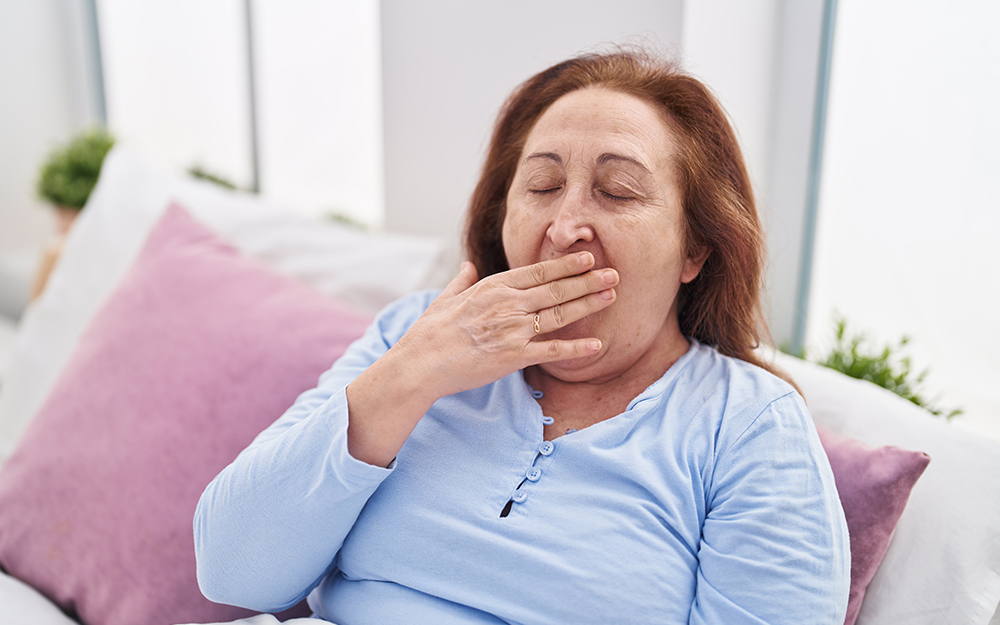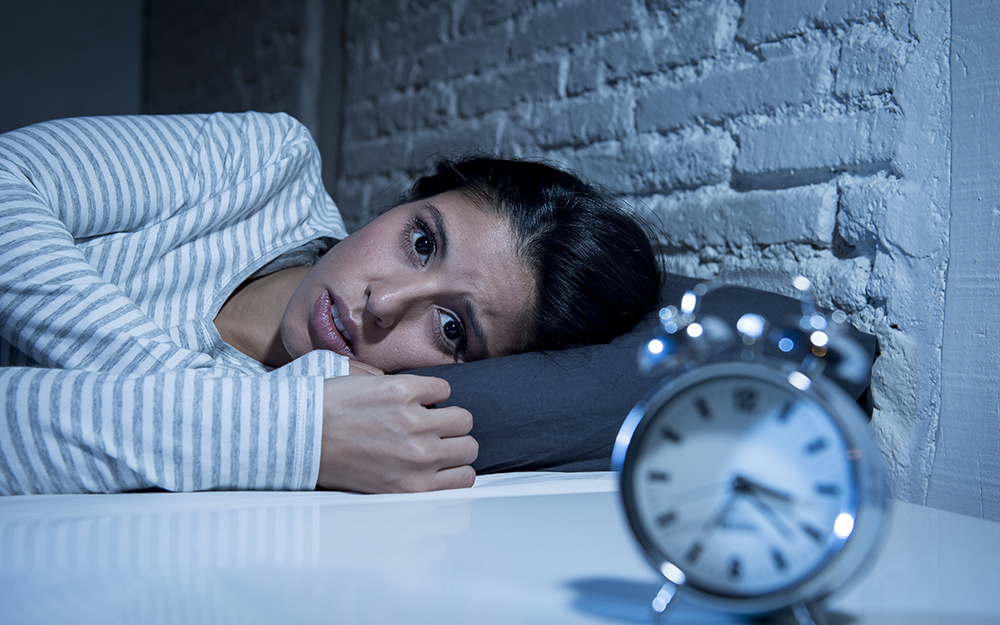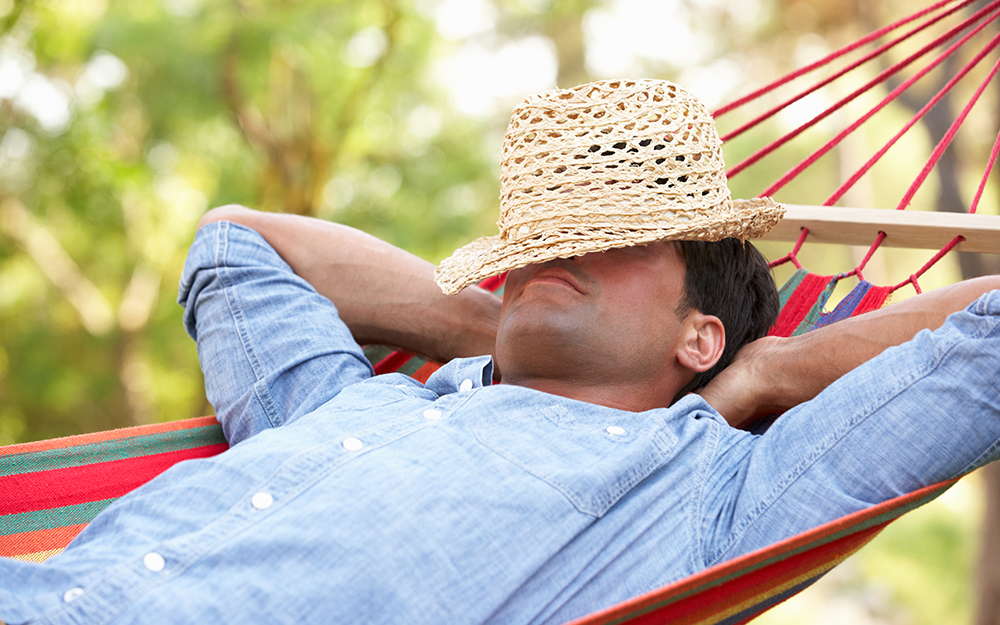We’ve all napped at one point or another. Sometimes it can be just the thing you need, while at other times it will leave you feeling groggy and sleepier than before you got your head down. To find out the right times to nap and when you should resist the urge, we spoke to Mattress Online’s expert in all things sleep, The Sleep Geek (also known as James Wilson).
If you listen to some wellbeing experts, they would have you believe that there is one single solution to all your ills, a magic bullet that will help you achieve your greatest happiness forever after — and that is to have a nap. Now, don’t get me wrong, I enjoy a nap as much as the next person. But for some people, they are not needed, and for others, a nap may actually ruin sleep, and by extension, negatively impact that person’s wellbeing.
Let's pick through some of the myths and snake oil to work out if napping is right for you.
Napping as a force for good
Firstly, the positives. Naps are a great way to battle the symptoms of sleep deprivation. They can give you a boost of alertness, make you more productive, and can help if you are sleeping against your natural circadian rhythm; for example, if you are a natural night owl who has been forced to get up at 5am for work.
They can also be a godsend for shift workers - a nap will fill the gaps in their sleep, helping them meet their sleep needs. This is particularly true when trying to sleep during the day.
The darkside of napping
Naps don’t really work well if they impact on 'sleep homeostasis' — one of the internal systems that manage our sleep.

Consider sleep homeostasis as a type of ‘sleep pressure’. It’s your body trying to keep you balanced with enough sleep. The longer you go without sleep, the more your sleep equilibrium is disrupted and the sleepier you get. The subsequent feeling of tiredness is your body forcing you to catch up on lost sleep. However, it also works the other way; take a nap close to bed and you suddenly have a surplus of sleep on your clock, making it hard to turn in for the night.
Think of it like an appetite; the longer you go without food, the hungrier you get. If you have a snack too close to your tea, you may not be able to finish your meal.
For some, a nap in the day actually makes it harder to sleep at night. Naps can impact not only deep sleep but also REM sleep, leaving you tired the next day. And guess what the result of that is? Yep, you’ll need to nap in order to fully meet your sleep needs. And this cycle of sleep doom can continue indefinitely.
For others, any nap or extended period of sleep at all can damage their night time sleep, even just an overlong nighttime sleep might do it.
A cautionary tale about long naps
Here I want to highlight a mistake many of us make. Just because you might have a sleep in the day, that does not make it a ‘nap’. Here is a story to help explain what I mean.
I once worked at a company when a woman came to see me to talk about her sleep. She reported that she just couldn't get to sleep until 2am.
When working with poor sleepers in this way, I like to understand what they do between the time they get home from work and when they go to bed. The woman in question said that she got home, went to bed, had a ‘nap’ from 5.30pm until 9.30pm, got up, had her evening meal, went back to bed about 11.30pm, then laid awake until 2am before dropping off at 2am and sleeping fitfully until 6.30am.

She could not understand that the humongous nap was the problem. This initial trip to bed was reducing her appetite for sleep, making it impossible to drop off when she wanted to at 11.30pm. If you do the maths, you can see that she actually had about eight-and-a-half hours of sleep - an appropriate amount - just not in one block.
The solution was quite simple: knock the naps on the head. Once she did this, her sleep appetite was stronger and she started to fall asleep between 10.30pm and 11.30pm. Job done!
Not able to nap?
This probably means that you are meeting your sleep needs at night. Simply put, you are not deprived of sleep so don’t need one.
Regardless of whether the latest newspaper article tells you that naps are the cure for everything, if you are getting the right amount of sleep when you go to bed, you won’t need to nap during the day.
And while some people may yearn to be able to nap, others find it doesn’t always work for them.
Some people are put off by waking up feeling groggy and lethargic. This happens because your nap will often crossover into deep sleep, and waking from deep sleep can be a horrible, disorientating experience. If this sounds like you and you still want to continue napping, try experimenting with the length of your nap. You may just need to make it a little bit shorter.
Perfect conditions for napping
So how do we create the best conditions for a nap?

So how do we create the best conditions for a nap?
Where to nap
When it comes to location, we all have our preference. Some people like to be in bed where it‘s dark and quiet, and where they feel they will get the most benefit out of their nap.
However, I am always wary of this approach. Preparing a nap so it feels like a nighttime sleep only makes it harder to wake when the alarm goes off. And a 30-minute nap can so easily become a six-hour sleep, where you wake up dribbling and confused at around midnight! I prefer something you find relaxing beforehand like a comfortable chair. If you need it dark and quiet, use an eye mask and ear plugs…although, for me, I prefer a bit of noise and light when napping.
The most important thing is to work out what works for you.
When to nap
To timings. When and for how long should we nap? Firstly, as with most things, consistency is key; you’ll get more from napping if you do it regularly at the time, particularly if your lifestyle means that not napping will see you failing to meet your sleep needs, leaving you sleep deprived.
Napping before 2 o’clock in the afternoon will make it less likely to impact your nighttime sleep.
In terms of how long, research shows the optimum time for a nap is five to 15 minutes. However, it is hard to control sleep in this way. My advice would be to set your alarm for 30 minutes - it might take you 10 to 15 minutes to fall asleep and then you get 10 to 15 minutes of napping. This will be enough to leave you alert and active, but not so much that you are heavy headed and confused.
Finally, and rather counter-intuitively, it's said that one way to get more from your nap is to have a shot of caffeine beforehand. It is said that caffeine takes roughly 30 minutes to metabolise, and as you wake, you get the double benefit of nap rejuvenation and caffeine alertness…. a nappuccino, if you will.
If you fancy it, give it a go. I tried once but it didn't really make me feel more alert. However, no two people sleep the same so you might have a different experience.
And there you go, The Sleep Geek’s guide to napping. I hope it helps you get the rest you need.
Sleep well….


















